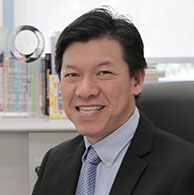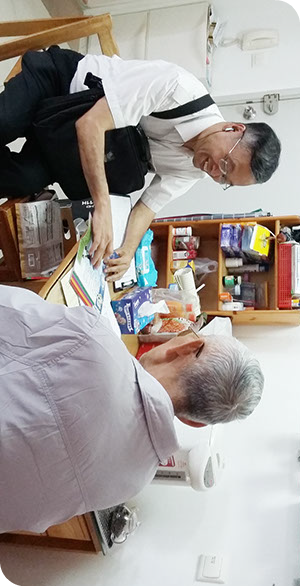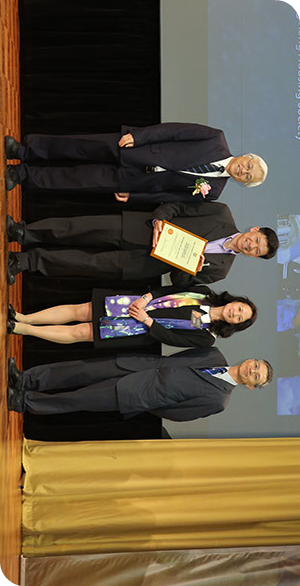Ageing Out Of The Box
It is possible to find a sustainable way to care for our greying population, argues Professor Terry Lum, who is leading several large projects toward this end. Asian values and empowerment are at the core of his vision.


The problem of ageing populations is starting to plague Asian economies, but with a twist: ageing is happening at a far more rapid pace here than in the West, leaving little time to prepare.
The US, for instance, had 69 years to adapt to a doubling of the over-65s from seven per cent of the population to 14 per cent. In Asia, the transition is being compressed into a single generation of about 25 years. All of that means there is an urgent need for solutions.
Professor Terry Lum, Henry G Leong Professor in Social Work and Social Administration, Director of the Sau Po Centre on Ageing, spent nearly two decades in the US developing innovative programmes for the most frail elderly, before coming to HKU in 2011. Now he is turning his efforts to Hong Kong’s ageing problem, where he sees constraints but also opportunities.
“In the West, they have developed a compensatory system because a lot of people live far away from their parents and can no longer look after them when they are elderly. Non-governmental organisations and service providers have replaced family support.
“Hong Kong also has a compensatory system, yet its conditions are different. Young people still live close to parents. Communities and families are intact. You have filial piety, domestic helpers. We should try to look at how to channel resources to the community and family instead of taking power away from them, which is the Western way.”

![]() If we can activate the power of the family and community, then the burden on families will be less and the government can focus resources on the most needy.
If we can activate the power of the family and community, then the burden on families will be less and the government can focus resources on the most needy. ![]()
Professor Terry Lum
New models of care
Professor Lum has several projects working towards that goal, the largest of which is a HK$24.6 million study on long-term care commissioned by the Hong Kong Government.
Some 6.8 per cent of over 65s here are in residential care and another 2.5 per cent are waitlisted, compared with three or four per cent in nursing homes in the US and Japan. The Government picks up most of the bill, which will be clearly unsustainable as society continues to age.
The Government is now considering a voucher system so frail elderly and their families can decide what level of care to select and top-up the voucher amount if they wish. But in order for that to work, there have to be benchmarks for quality and a more sophisticated protocol to assess the level of care that an elderly person requires.
Professor Lum has been developing these tools, which could maximise choice even to the extent of funding family and community members to look after their elderly provided they met quality benchmarks. A full set of recommendations will be delivered towards the end of 2016.
“This is not simply fine-tuning,” he insisted. “The existing system will collapse if there isn’t a major revamp.”

Trained peer health educators conducted home visits to elderly residents.
Expanding choices
Community support is also the focus of an ageing-in-place programme being implemented with the Hong Kong Housing Society at 11 of its public rental housing estates. The goal is to keep the elderly at home as long as possible, thus easing some of the demand on care homes. The programme includes home and environmental modifications and social programmes that promote active and healthy ageing. Volunteers have been organised and staff at the estates have been trained to work with frail elderly residents. Professor Lum and his team are now assessing the impact of these changes on the health and well-being of the elderly residents and their likelihood of staying in the community as they age.
A third project aims to keep elderly healthy for as long as possible, which could also lower demand on care homes. The Sao Po Centre is developing a model to promote exercise and lifestyle change among the elderly with HKU colleagues in Geriatric Medicine, Nursing, Social Work and the Institute of Human Performance. The model will be based on a pilot project in which frail participants reported improved well-being after three months, with some able to walk without walking sticks. The project has received HK$5.3 million from the Simon KY Lee Foundation.
All of these projects aim to address what Professor Lum sees as fatal flaws in the current system of old-age care. “This system has been limiting our choices and making us depend on Government. It is disempowering the community rather than empowering. The key for us is to think outside the box.
“The family, community and Government can become shared partners in the provision of care. If we can activate the power of the family and community, then the burden on families will be less and the Government can focus resources on the most needy.”

Professor Terry Lum (second from left), Dr Vivian Lou (second from right) and Dr Ernest Chui (first from right) received the Knowledge Exchange Award from Professor Paul Tam (first from left) for their project on ‘Promoting Ageing-in-Place for Elderly Tenant in Rental Housing Estates of Hong Kong Housing Society’.

